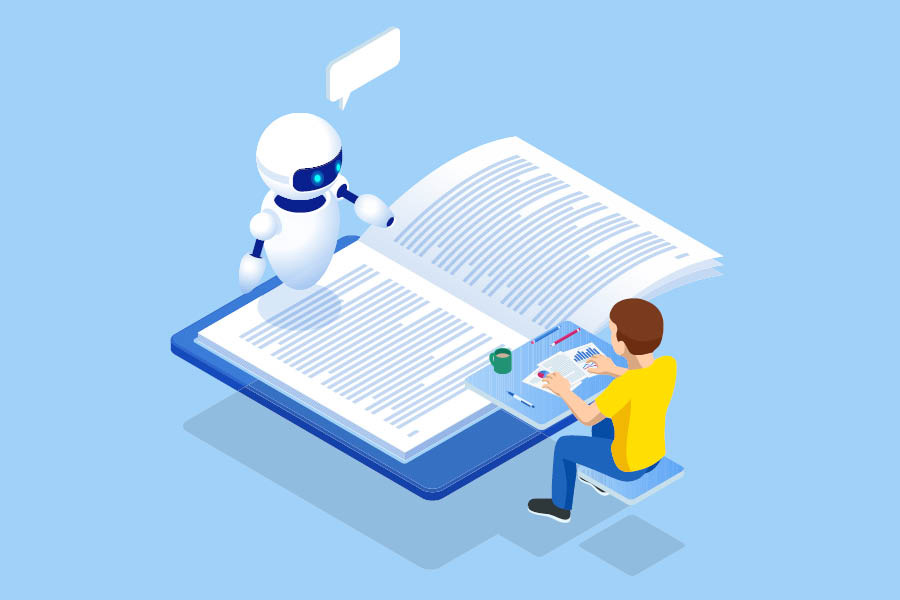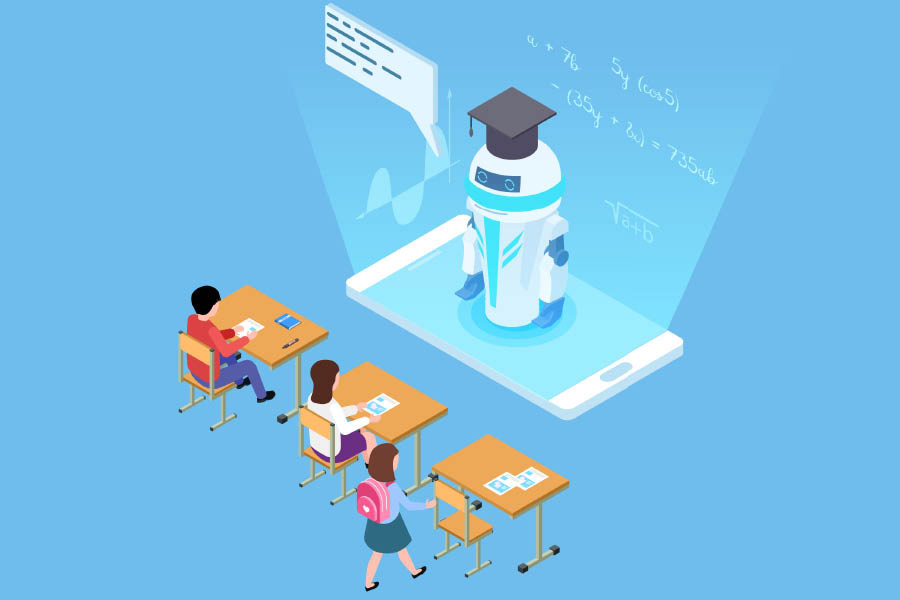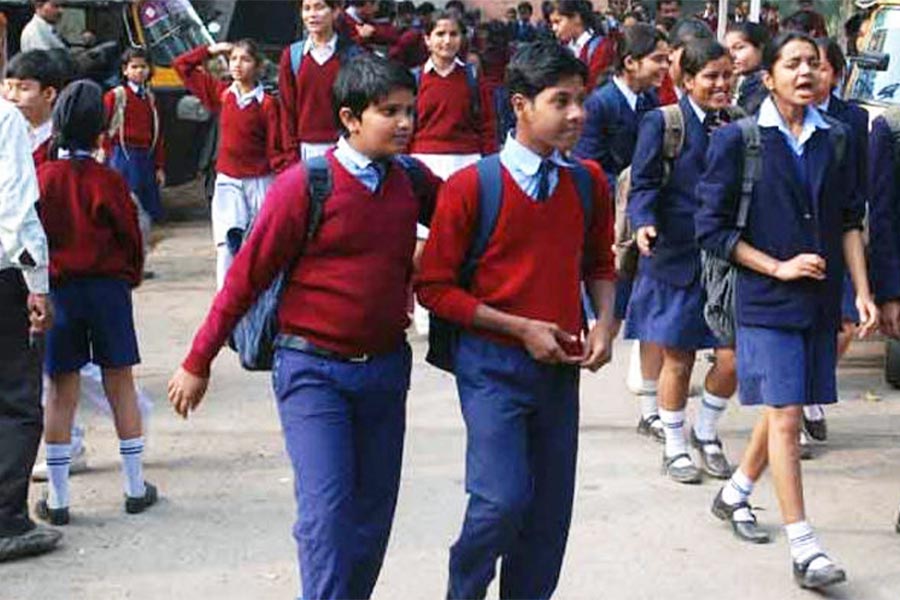“Well, we got no choice / All the girls and boys / Making all that noise / 'Cause they found new toys /. . . / School's out for summer / School's out forever / School’s been blown to pieces” — Alice Cooper’s School’s Out, was released in 1972, and so was I, from school. The ISC done, most of us were rocking to the song, and the words and we thought we’d never come back like the song says. But I did.
A few years later, I was back in school as a teacher. And I rued the day I sang, “No more pencils, no more books / No more teacher’s dirty looks / Out for summer, out 'til Fall / We might not come back at all.”
That last line. It almost occurred during the long pandemic break. ‘No more teacher’s dirty looks’ did actually happen. Kids could switch off their cameras and remain out of sight. Pencils and books fell by the wayside as laptops and mobiles took precedence. Teachers had to deal with a whole new breed of natural intelligence and cunning as the dynamics of the classroom changed. “My camera or microphone isn’t working” has to be the winning one-liner typed in Zoom chat. As an educator I saw Zoom, Google Classroom and Microsoft Teams vying for screen space among schools and teachers. Free online training, certification and all manner of courses to “upgrade” teachers who were presumed downgraded as far as technology was concerned. The term “technoplegic” was coined to indicate those who were unable to handle technology.

An essay given as a home assignment suddenly looks suspiciously common across the classroom. As you sit there, with red pen poised, searching fruitlessly for mistakes as all good teachers do, you realise that AI is invading the classroom
Somewhere in that quagmire, the reality of AI crept in. All my life, the term ‘AI’ was applied to dear friends of mine, the Anglo-Indians. You can’t confuse the two. My kind of AI is a fun-loving, hard working, music-making gang of people with loads of NI — Natural Intelligence. In fact, a large section of Anglo-Indians formed the teaching community in Calcutta before Australia took them down under. The new AI — Artificial Intelligence — though it is now all-pervasive, presents new challenges to teachers as a whole and language teachers in particular.
Word-perfect prose now flows from the keypad of the student who was a model of mistakes earlier. What a turnaround! He still can’t write, though. An essay given as a home assignment suddenly looks suspiciously common across the classroom. As you sit there, with red pen poised, searching fruitlessly for mistakes as all good teachers do, you realise that the other AI is invading the classroom.
“What’s your problem? I got ChatGPT,” I was recently told, when I exhorted a young executive to rewrite his CV. My son told me he would put in his resignation letter “soon” — which left him less than an hour before the end of day when it was due. Again, “ChatGPT will do it for me in a minute.” For these cookie-cutter tasks it seems the tool will work wonders. For other tasks it warns you that “This version of me is updated until July 2023”. Beyond that, you pay — and few people do. But, it can still write poetry in various genres. It doesn’t need to make any real sense but it is impressive. As far as I know, AI can’t recite and emote poetry the way the teacher can. And though AI has an extensive database of words, it does not have an extensive vocabulary — to use the right word at the right time. So, language teachers can breathe a sigh of relief that they are still relevant and teach that “poetry is the overflow of powerful emotions recollected in tranquillity” — not in Bits!

As far as I know, AI can’t recite and emote poetry the way the teacher can. And though AI has an extensive database of words, it does not have an extensive vocabulary — to use the right word at the right time Shutterstock
Other than a teacher, who else can get an entire class wreathed in bedsheets, carrying plastic retractable play-knives, onto a stage reciting and enacting lines from Julius Caesar? AI could probably give you a recitation of the lines in the voice of Amitabh Bachchan or Sir Laurence Olivier; it could probably serve up a generated animation of the scene, created by a battery of cyber-worms working their keypads late into the night; it might even be able to stage the play at a virtual theatre. But I seriously doubt if, like in an interactive play produced by The Red Curtain, the actors could respond and interact with the audience in real time. That takes Real Intelligence. Language teachers conduct elocution, drama and debate programmes. They know the difference between artificially generated arguments, playing to the gallery and thinking on one’s feet. And they can recognise creativity when it pops up. Like, “My dog ate my pen drive”.

All teachers run a risk that one day AI will reach a level that will challenge natural intelligence, it might even pass the Turing Test Shutterstock
Of course, all teachers run a risk that one day AI will reach a level that will challenge natural intelligence, it might even pass the Turing Test (go ahead, look it up on ChatGPT). Many people will trust it implicitly. But I haven’t seen that with many of the current tools we created. It’s like people performing left to right calculations on a calculator and swearing blind that they are correct, despite the rules of BODMAS. [6 + 5 x 2 = 22 on a calculator and 16 in maths!] Or, like finding your way to a remote place using Google Maps. It will take you there as the crow flies, through “caverns measureless to man” with apologies to Coleridge. And you may have to wedge your car into a corner from which there is no return. But you trust it more than those wizened old guys on the roadside who suggest an easier route not shown on Google. Or even using a device like Auto-Tune to make sure you’re singing in perfect pitch onstage, till the line disconnects and your tone-deafness is displayed in all its glory.
At the end of the day, the most operative word in the phrase AI is ‘Artificial’ and as long as it remains so, we are safe from the Revenge of the Robots or whatever other Armageddon is threatened for teachers. As Alice Cooper says, in a line replete with tongue-in-cheek puns:
Well, we got no class /And we got no principals / And we got no innocence / We can't even think of a word that rhymes, well / School’s out …
As a bonus, here’s an AI-generated version of Wordsworth’s Daffodils as sung by a rapper (you need someone to beatbox alongside):
I was wand’ring, like a cloud so free, Through valleys and hills, just me and my chi, Then out of nowhere, I peeped a sight to see, A field of daffodils, gleamin’ bright and key; By the lake, under trees that sway with ease, They danced and shined, catchin’ the breeze.


